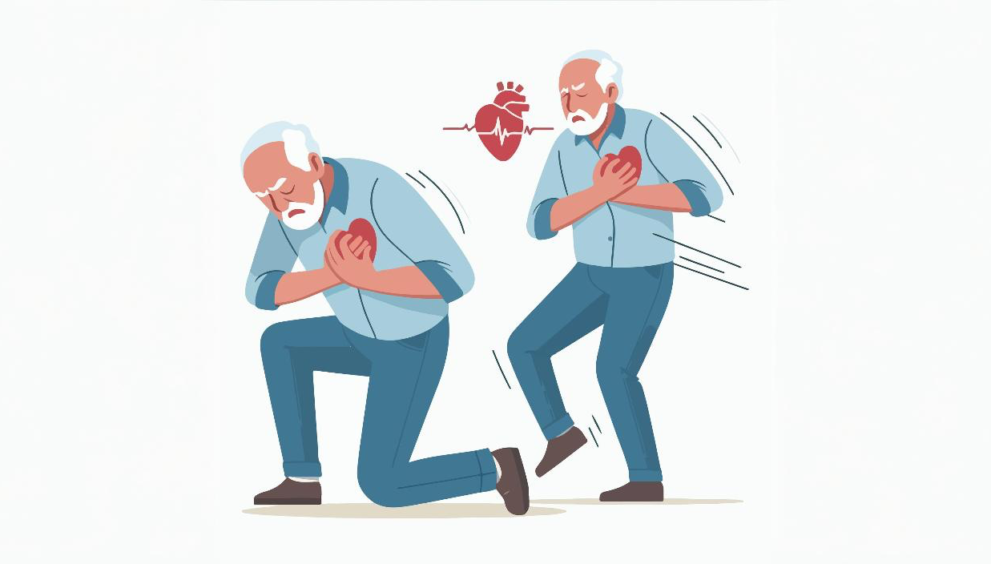FACT CHECK: Should you chew disprin, clopidogrel and atorvastatin tablets in case of a heart attack?
These three medications should be kept in a first aid box. "We recommend keeping them in a pouch for emergencies," a doctor is heard claiming in an instagram reel.
Author
Author
- admin / 12 months

- 0
- 4 min read

Author
CLAIM:
Disprin, clopidogrel and atorvastatin tablets should be chewed in case of a heart attack
FACT:
This claim lacks context and can be misleading for some viewers.
First Check reviewed an Instagram reel posted by @healthwithreels which talks about first aid that should be given to people if they suffer a heart attack.
The video, which has close to 200,000 likes and over 7.2 million views on Instagram, features popular podcaster Raj Shamani in conversation with cardiologist Dr Bimal Chhajer.
“If someone is having a heart attack in front of us, is there anything we can do to delay it a little, to save them?” the host asks.
The doctor explains, when a heart attack occurs, it means a clot has formed, to dissolve that clot, we give certain medications. “One is disprin, another tablet called Clopidogrel, which should be taken—and also Atorvastatin for cholesterol. These three should be chewed… so that they dissolve faster,” he says.
These three medications should be kept in a first aid box. “We recommend keeping them in a pouch for emergencies,” he adds
The reel seems to be cut from a full-length podcast interview posted by Shamani on YouTube, which has around 3.5 million views.
Experts First Check spoke to explained that this may not always be helpful, especially if the patient if having a cardiac arrest- which is used interchangeably with heart attack by the layman, but are medically different phenomena.
According to Dr Shiv Kumar Choudhary, a Cardiovascular and Thoracic Surgeon at Fortis Hospital in New Delhi, “It’s important to understand that a heart arrest means a stoppage of the heart’s pumping action. The primary concern is that if the brain doesn’t receive blood within 3 to 5 minutes, it can cause irreversible damage.”
He further explains that the first thing to do in such an event is “to perform CPR and immediately call for medical help.”
While tablets like Disprin and Clopidogrel can prevent further clot formation and be useful for heart attack, which comprises of chest pain, they cannot help in case of a heart arrest. “Both are different, we should be mindful,” he says.
A heart attack occurs when blood flow to the heart is blocked, whereas sudden cardiac arrest occurs when the heart suddenly stops beating. Many cardiac arrests in adults happen because of a heart attack. This is because a person who is having a heart attack may develop a dangerous heart rhythm, which can cause a cardiac arrest. “A heart attack and a cardiac arrest are both emergency situations and one should immediately seek medical help,” Dr Choudhary says.
He emphasizes that “these tablets don’t address the underlying issue of heart arrest, which could involve a flat ECG or ventricular fibrillation.” In such cases, Dr. Choudhary says the priority should be “to restore blood circulation and seek immediate medical intervention.”
Guidelines from the United States Preventive Services Task Force warned against using aspirin for the primary prevention of heart disease unless you are at higher risk. This typically applies to individuals aged 50 to 69 who have a 10% or greater likelihood of experiencing a heart attack or stroke within the next decade.
Some doctors advise against crushing or chewing medications. “The correct dosage and duration of any medication should be determined by a doctor based on an individual’s age, body weight, and medical condition,” says Dr. Shiv Kumar Choudhary. Online medicine retailers caution against the use of Disprin, Clopidogrel, and Atorvastatin during pregnancy. While some studies indicate that the safety of Clopidogrel, particularly when combined with aspirin, remains uncertain during pregnancy, others suggest its use has not shown significant toxicity to either the mother or the newborn.
The part of the video that has gone viral as a reel lacks further context and hence, can be misleading for some viewers.
Also read: EXPLAINER: How are constipation and heart attacks linked?
Do you have a health-related claim that you would like us to fact-check? Send it to us, and we will fact-check it for you! You can send it on WhatsApp at +91-9311223141, mail us at hello@firstcheck.in, or click here to submit it online.










